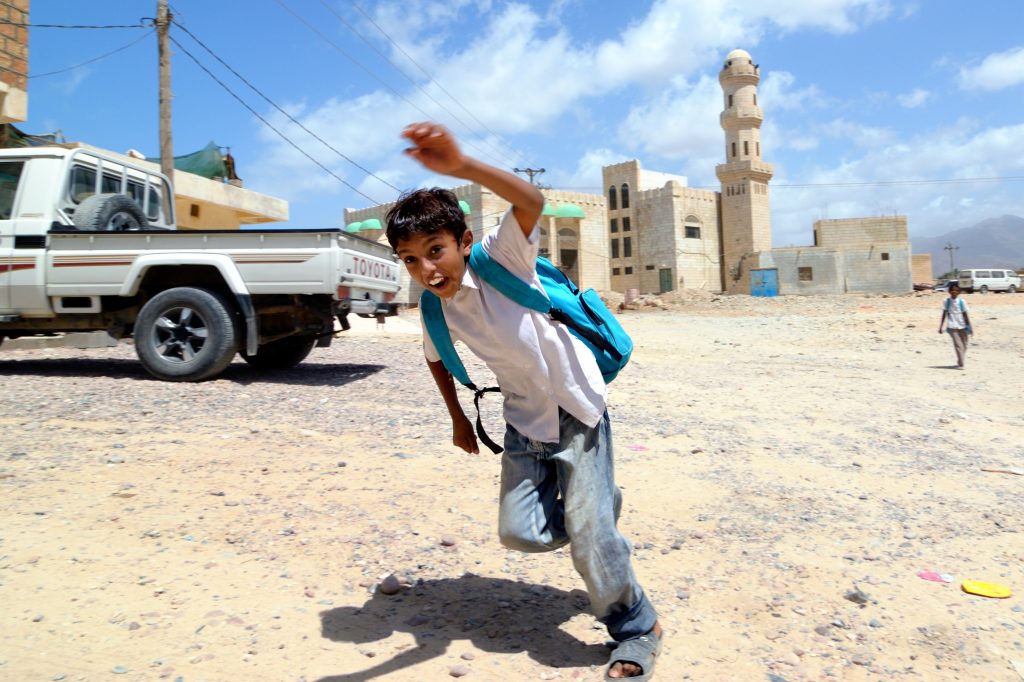Jamal Bin Huwaireb reflects on the challenges posed by the COVID-19 pandemic to lifelong learning in the Arab region

The Arab region, in common with many other parts of the world, faces significant challenges in achieving lifelong learning, notably high levels of illiteracy and education systems damaged by poverty and conflict. The toppling of governments during the ‘Arab Spring’ and conflict between and within countries have destroyed education systems in Iraq, Syria, Libya and Yemen, while seriously damaging opportunities for learning in other Arab countries. The COVID-19 pandemic is now undermining the economic activity on which individuals, families and communities depend. While people are struggling to earn, they cannot use their resources to learn. And, without learning, they are condemned to a life focused on subsistence only, with young people increasingly exposed to the temptations of criminal behaviour and terrorism.
Communities and governments seek to provide social support in the form of health and education, as well as routes to gainful employment or entrepreneurship for youths and young adults. Even in wealthy countries, there are challenges in providing sufficient resources for health, education and employment. The pandemic is placing yet more strain on budgets and institutions, and creating additional challenges and demands.
In the United Arab Emirates (UAE), for example, the government took quick action to protect the population by closing schools and universities and shifting to home schooling and online lectures. In the short term, this has been very effective and welcomed by parents and university students. Meanwhile, medical facilities have been mobilized to offer testing and, where necessary, hospital care to all, whether citizens, residents or visitors.
Additional health and education costs must, of course, be paid for from government income, whether from natural resources, entrepreneurship or, in the case of many poorer countries, foreign aid. Usually, countries manage the challenges of funding health and education by balancing income and expenditure over the course of a few years. In the UAE, the pandemic has demolished this balance. Health is using more resources, while education must still be provided, teachers paid and additional technology purchased. Yet, business activity, and hence income for governments reliant on fees and taxes, have collapsed in many Arab countries.
The social impact has been profound as well. People in this region, not just Arabs but Asian and other migrant workers, are used to regular and close social interaction. The concept of social distancing is alien to the majority of people, especially those in poor communities and poorer Arab countries. Basic hygiene is also a challenge in many places. Where infrastructure has broken down due to crisis or conflict, even hand washing may be impossible.
And while home schooling and online lectures have worked well in a well-organized and sophisticated country such as UAE, most young Arabs live in countries where owning a smart phone is exceptional and owning a laptop a dream. Even when technology is affordable, the infrastructure, including electricity and internet access, is unreliable.
UNESCO Director-General Audrey Azoulay has pointed out that it is disadvantaged children and youth who tend to be the hardest hit by school closures: ‘While temporary school closures as a result of health and other crises are not new, unfortunately, the global scale and speed of the current educational disruption is unparalleled and, if prolonged, could threaten the right to education.’
Where a child loses education, it can be almost impossible to make up the loss, even during a lifetime of learning as an adult. The closure of schools and universities could harm the life chances of people in the Arab region, including for adults who are facing other substantial problems in their families, communities and societies.
To address these issues we need, first, to invest more in remote learning. We should pay much more attention to providing remote learning, even where there is no internet access (for example, putting lesson plans and learning material onto ‘dumb’ devices, as the Mohammed bin Rashid Al Maktoum Foundation in UAE has done for teachers, students and young adults in conflict and crisis areas.
Second, we need to rise to the literacy challenge. UAE has done much to support the United Nations, including the UN Development Programme and UNESCO, with a number of education initiatives to provide learning, including by helping Gordon Brown as the UN Special Envoy on Global Education. The literacy of youth and adults worldwide is key to further learning. We must invest more in providing everyone with the ability to read and write.
The disruption caused by COVID-19 will pass but the need to provide lifelong learning, especially for those who have had their education interrupted by the pandemic, will be with us for decades to come unless we take positive action now.
Jamal Bin Huwaireb is Chief Executive Officer, Mohamed Bin Rashid Al Maktoum Knowledge Foundation, United Arab Emirates, and is a member of the UIL Governing Board.
